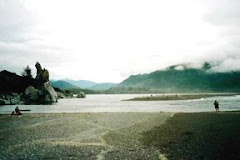Here’s a partial list of the advantages so-called “On Project” irrigators will have IF promoters of the KBRA manages to succeed in their bid to use a separate dam removal deal to turn the KBRA into federal and state legislation:
- On Project irrigators would have a legislative guarantee to first call on Klamath River Basin water. Currently fish which are listed pursuant to the federal Endangered Species Act are the first priority in Klamath water allocation. Under the KBRA On Project irrigators would get some of that water. During drought years, the federal government would have to buy the water back in order to provide bare survival flows for salmon and other fish.
- On Project irrigators would be shielded from any efforts to reduce water demand in the Basin. Instead Off-Project irrigators would be targeted for a major reduction in the water use.
- On Project irrigators would get access to cheap Bonneville Power; Off Project irrigators would have to pay substantially more for the power needed to pump irrigation water.
- On Project irrigators would get legislatively guaranteed access to commercially farm on the Tule Lake and Lower Klamath National Wildlife Refuges – the only refuges in the country where production agriculture is allowed.
- While On and Off Project irrigators would get a wink-and-nod ESA non-enforcement plan from the feds, on Project irrigators would also be shielded from provisions of the California Endangered Species Act which – if conservationists had the guts to file the lawsuits – could currently be used to put refuges ahead of these irrigators in the allocation of Klamath River Basin water.
Based on these glaring inequalities, the Off Project irrigators should be able to garner substantial support from the American Public whose predilection for fairness and a level playing field is legendary. But vocal Off Project irrigators often appear to be more interested in keeping the Klamath Tribes from realizing its dream of a restored reservation than in securing a level playing field. This reminds us of what Extension specialists from Oregon State University found when they assessed the impacts of the 2001 irrigation water shut-off. Several Upper Basin residents interviewed referred to the “undercurrent of racism” which has at times risen to the surface during Klamath Basin water conflicts. Klamath Tribal Attorney Bud Ullman has addressed the issue most directly.
KlamBlog predicts that this is not the last litigation that will be filed related to the KBRA. Indeed, the proposed KBRA could result in numerous lawsuits and decades of litigation for a proposal that its promoters once claimed would bring Peace to the Klamath.


1 comment:
I'm thrilled to have found this Blog. Earlier this evening I called into a talk show (91.90)
--KBRA was the topic--with a question specifically about the irrigation issue. The host hung up on me after I asked the question. I was not able to share that I had researched the Klamath Basin "fish kill" as a student at College of the Redwoods under Professor Dr. Robert Mize, and that since then I had entered the Bachelor of Science in Legal Studies program at Kaplan University where I'm presently studying as an Golden Key International Honour Society member. The reason for entering into the BSLS program was because of not only my research regarding the Klamath Basin issue, but also research regarding water privatization on a global and a national level. This in my opinion is only the tip of the iceberg.
While listening to the talk show I kept wondering why no one was elaborating on the irrigation issue.
That is it for now, I will be back and hope to update myself again on this as I plan to integrate it into my capstone project at some point. Again thank-you for KlamBlog! Good job.
Post a Comment